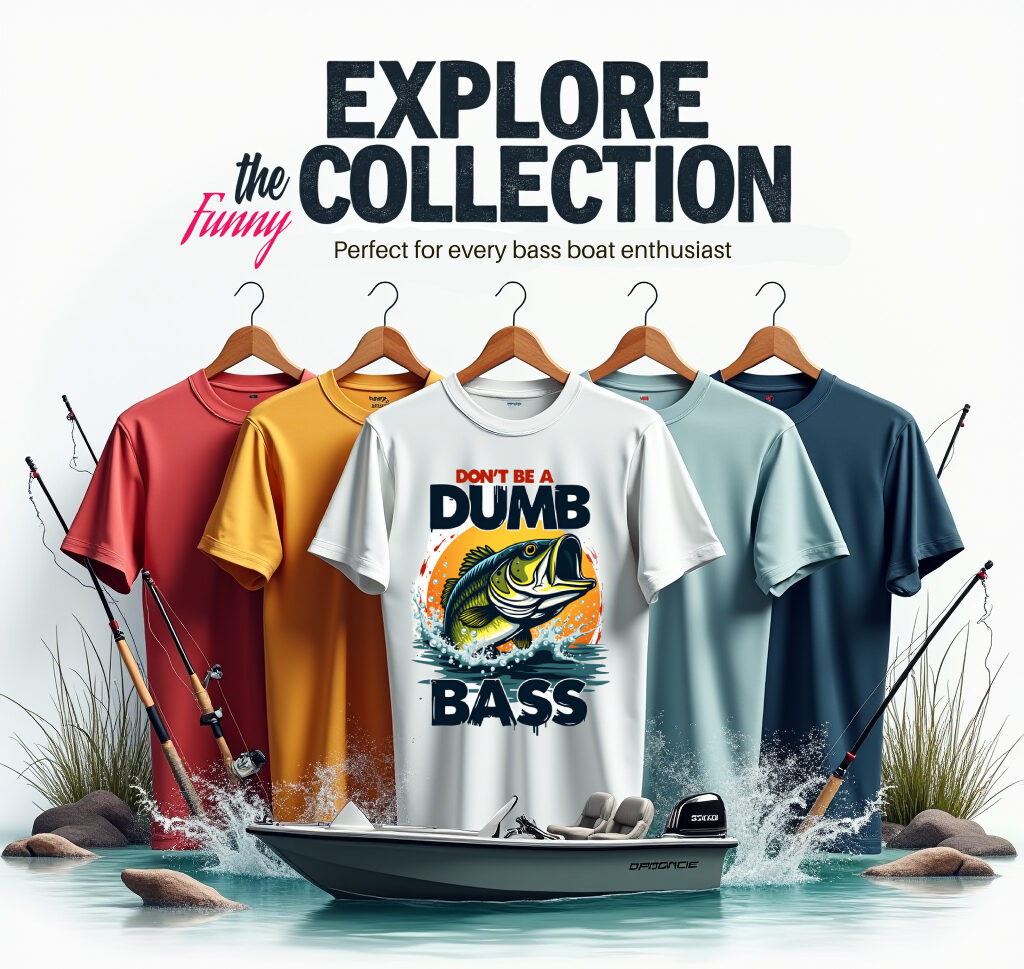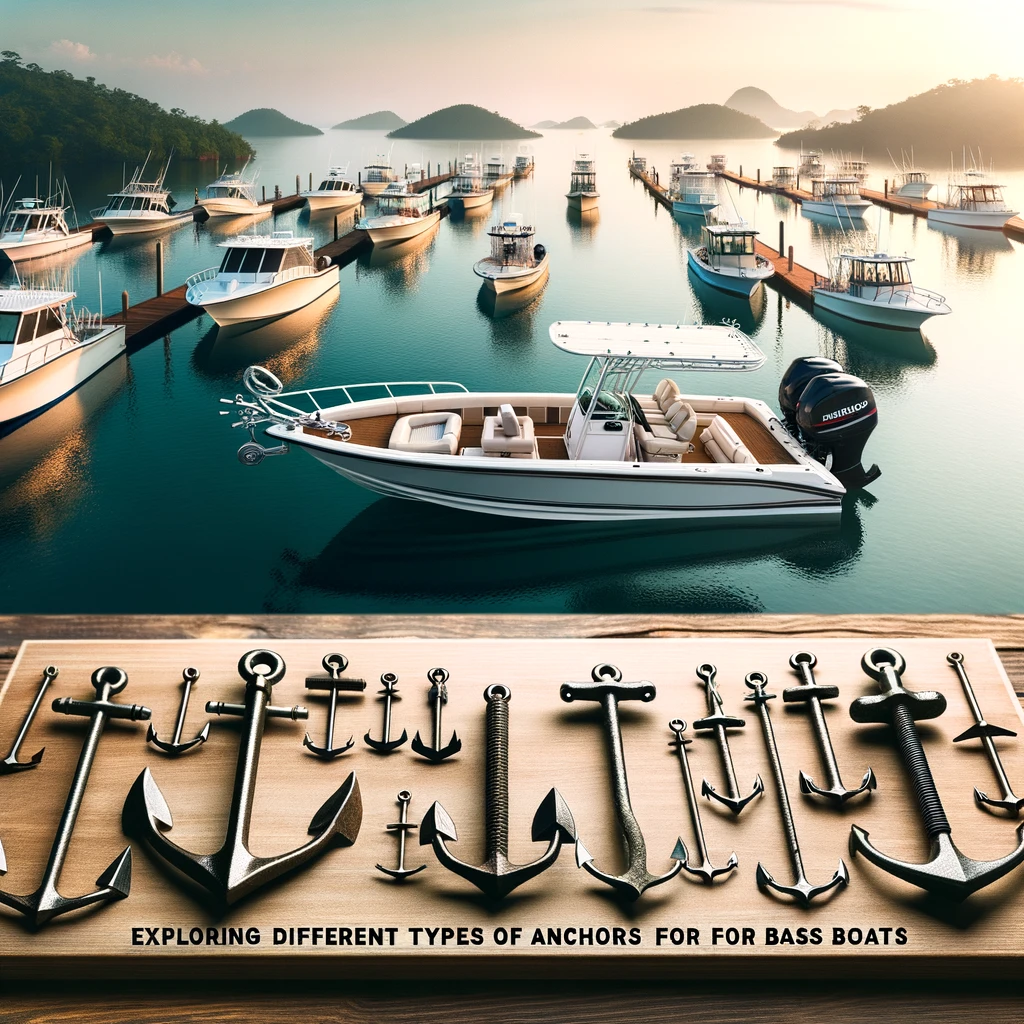Are you an avid bass boat enthusiast looking to enhance your fishing experience? If so, then you’re in the right place! In this article, we will be exploring the different types of anchors available for bass boats and helping you determine which one is right for you. Anchors play a vital role in keeping your boat stable and secure, allowing you to focus on your fishing without worrying about drifting away. So, let’s dive into the world of bass boat anchors and find the perfect one to suit your needs.
Exploring Different Types of Anchors for Bass Boats: Which One is Right for You?
When it comes to anchoring your bass boat, it’s important to choose the right type of anchor for the job. With so many options available, it can be overwhelming to know which one is best suited for your specific needs. In this article, we will explore the various types of anchors commonly used for bass boats and the factors you should consider when making your decision.
Types of Anchors
Fluke Anchors
Fluke anchors, also known as lightweight anchors, are designed with flukes that dig into the bottom surface, providing excellent holding power. These anchors are ideal for sandy or muddy bottoms and are commonly used in calm weather conditions. They are lightweight and easy to handle, making them a popular choice among bass boat owners.
Grapnel Anchors
Grapnel anchors have multiple hooks, or tines, that grip onto rocks, coral, or other debris on the bottom surface. They are versatile and can be used in a variety of bottom compositions. Grapnel anchors are particularly useful in rocky or weedy areas where other types of anchors may struggle to hold.
Claw Anchors
Claw anchors, also known as Bruce anchors, have a unique claw-like design that allows them to dig into the bottom surface and provide excellent holding power. They are well-suited for a variety of bottom compositions, including sand, mud, and grass. Claw anchors are known for their effectiveness in both calm and rough weather conditions.
Mushroom Anchors
Mushroom anchors feature a wide, flat bottom with a weighted top that resembles a mushroom cap. They work by using their weight to sink into the bottom surface, providing a secure hold. Mushroom anchors are best suited for softer bottom compositions, such as mud or silt. They are commonly used in calmer weather conditions.
Plow Anchors
Plow anchors, also known as CQR anchors, have a plow-like design that allows them to bury deep into the bottom surface. They provide excellent holding power even in challenging conditions, such as strong currents or winds. Plow anchors are well-suited for sandy or muddy bottoms and are commonly used by bass boat owners who venture into rougher waters.
Scoop Anchors
Scoop anchors, also known as Delta anchors, possess a unique scooped design that allows them to dig deep into the bottom surface. They provide excellent holding power in a variety of bottom compositions, including sand, mud, and clay. Scoop anchors are known for their reliability and are often used in both calm and rough weather conditions.
Lightweight Anchors
As the name suggests, lightweight anchors are designed to be easily portable and manageable. They are typically smaller in size and weight compared to other anchor types, making them ideal for bass boats. Lightweight anchors are suitable for a variety of bottom compositions and weather conditions, depending on their specific design.
Danforth Anchors
Danforth anchors, also known as fluke anchors, are designed with sharp, pivoting flukes that dig deep into the bottom surface. They provide excellent holding power in sandy or muddy bottoms and are commonly used by bass boat owners. Danforth anchors are lightweight and easy to handle, making them a popular choice for recreational boaters.
Box Anchors
Box anchors are unique in design, featuring a folding fluke design that allows for easy storage and deployment. They are known for their high holding power and are particularly effective in rocky or weedy bottoms. Box anchors are versatile and can be used in a variety of weather conditions, making them a reliable choice for bass boat owners.
Delta Anchors
Delta anchors, also known as scoop anchors, have a sharp, scoop-like design that allows them to penetrate and hold onto the bottom surface. They offer excellent holding power in a variety of bottom compositions and weather conditions. Delta anchors are commonly used by bass boat owners due to their reliability and versatility.
Equip your boat with nothing but the best. Explore our meticulously researched top 10 bass boat anchors to make an informed choice.
Factors to Consider
Now that we have explored the different types of anchors available for bass boats, let’s take a look at some important factors to consider when choosing the right anchor for your specific needs.
Boat Size
The size of your bass boat plays a crucial role in determining the size and weight of the anchor you should choose. Larger boats require larger and heavier anchors to ensure proper holding power. Conversely, smaller boats can get by with smaller and lighter anchors.
Boat Weight
Just like boat size, boat weight is an essential consideration when selecting an anchor. The anchor’s holding power must be sufficient to support the weight of your bass boat. It is always recommended to choose an anchor that exceeds your boat’s weight to ensure optimal anchoring performance.
Water Depth
Knowing the water depth where you plan to anchor is crucial when selecting an appropriate anchor. Different anchors have different maximum recommended depths, and it’s important to choose one that is suitable for the depth you will be boating in. Additionally, if you plan to anchor in varying depths, consider an anchor that can easily be adjusted or reset.
Weather Conditions
The weather conditions you plan to encounter while boating should also play a significant role in your anchor selection. If you typically boat in calm weather conditions, lightweight anchors or mushroom anchors may suffice. However, if you often venture into rough waters, it is recommended to choose an anchor with excellent holding power, such as a plow or scoop anchor.
Bottom Composition
Understanding the bottom composition of the areas you will be boating in is essential when selecting an anchor. Different anchors perform better on different bottom surfaces. For sandy or muddy bottoms, fluke anchors or mushroom anchors may be suitable. For rocky or weedy bottoms, grapnel anchors or claw anchors may be a better choice.
Anchor Material
The material from which the anchor is made can affect its performance, durability, and corrosion resistance. Stainless steel is a popular choice due to its strength and resistance to rust and corrosion. Galvanized steel is also widely used for its durability. It is important to choose an anchor made from high-quality materials to ensure long-lasting performance.
In conclusion, choosing the right anchor for your bass boat is essential to ensure the safety and stability of your vessel. By considering factors such as boat size, boat weight, water depth, weather conditions, bottom composition, and anchor material, you can make an informed decision that meets your specific needs. Whether you opt for a fluke anchor, a grapnel anchor, a claw anchor, a mushroom anchor, a plow anchor, a scoop anchor, a lightweight anchor, a Danforth anchor, a box anchor, or a Delta anchor, selecting the right anchor will provide you with peace of mind during your bass boating adventures.


